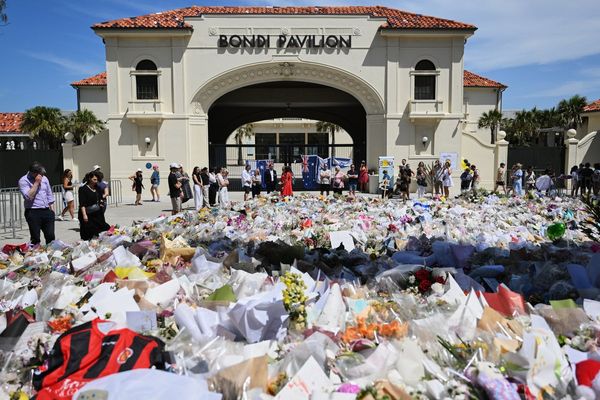
Outgoing U.S. president Joe Biden is trying to affirm his presidential legacy in the final days of his term, before Donald Trump takes office. In a speech at the State Department on Monday, Biden highlighted just how tough he's tried to be on China, and how the U.S. is stronger now compared to four years ago.
“Many experts believed it was inevitable that China’s economy would surpass ours,” Biden said. “According to the latest predictions on China’s current course, they will never surpass us.”
In November, a forecast from Bloomberg Economics suggested that China’s GDP might not overtake the U.S. until the mid-2040s, and that any lead will be slim and brief. Economists cited China’s post-COVID slowdown for the downgrade.
In his speech, Biden listed actions his administration took against China, including taking action against alleged dumping of Chinese imports, rebuilding alliances to contain Beijing, and imposing new tariffs and export controls.
Biden, during his four years in office, broke with many of his predecessor’s policies, except those on China. The outgoing president kept many of Trump’s tariffs in place, and then imposed even tougher restrictions on strategic sectors for Beijing.
The U.S. first imposed broad export controls on China’s chip sector in 2022, and has tightened them several times since then. These measures aim to kneecap China’s progress in making advanced chips used in AI applications.
Then, on Monday, the Biden administration unveiled new restrictions that would limit the export of advanced chips to all but a handful of close U.S. allies. Officials justified the move, criticized by both AI chip leader Nvidia and the Semiconductor Industry Association, as necessary to stop leading chips from secretly making their way to China.
The rules are “critical” to preserving U.S. leadership in AI, Commerce Secretary Gina Raimondo said on Monday.
Ultimately, the final rules will be left to the incoming Trump administration. Biden has left a few other China policy decisions to his successor, including the outcome of a trade investigation into China’s production of mature chips.
In his Monday address, Biden said that he’d left Trump a “strong hand to play,” and urged his successor to focus on AI and clean energy to stay ahead of China.
Exit interviews
Biden’s farewell address shows just how hawkish Washington has become on China, across both political parties (which agree on little else).
Last week, U.S. ambassador to Japan Rahm Emmanuel, called the U.S. the “thin blue line” against autocracy, lumping China, Iran and North Korea into a group he called the “axis of autocrats.”
Fellow diplomat Nicholas Burns, the U.S. ambassador to China, took a softer tone in his exit interview with the New York Times, yet still criticized Beijing’s actions as “disruptive.” He alleged China was “aligning themselves with the most unreliable agents of disorder in the international system,” namely Russia, Iran and North Korea.
On Monday, National Security Advisor Jake Sullivan told Bloomberg that he’s pushing the incoming administration to work with Europe on a critical minerals marketplace to prevent China from choking off the supply chain.
Some outgoing officials have endorsed the use of tariffs to counter Chinese policies.
“Tariffs have their place,” Raimondo said in an interview with CNN, which aired Sunday. “China is subsidizing the chip industry, and that’s not fair.” She also suggested that Chinese electric vehicles pose a national security threat to the U.S., due to concerns that collected data might be transmitted “back to Beijing.”
Katherine Tai, the outgoing U.S. Trade Representative, also endorsed tariffs in an essay for Foreign Affairs, published last week. As part of a “fair competition agenda,” Tai wrote that the U.S. might need to deploy tariffs “to guard against the anticompetitive economic policies of nonmarket autocracies such as China,” and suggested these policies will help counter “economic predation, especially in those sectors that define strategic competition for the future.”
What happens next?
The Trump administration is likely to remain locked in a geopolitical contest with Beijing. The incoming president has already promised an additional 10% tariff on all Chinese imports, on top of existing duties. During the campaign, Trump promised to impose tariffs as high as 60%.
Trump has also nominated several China hawks to his administration, including
Senator Marco Rubio (R-Fla.) as Secretary of State and Representative Mike Waltz as National Security Advisor.







